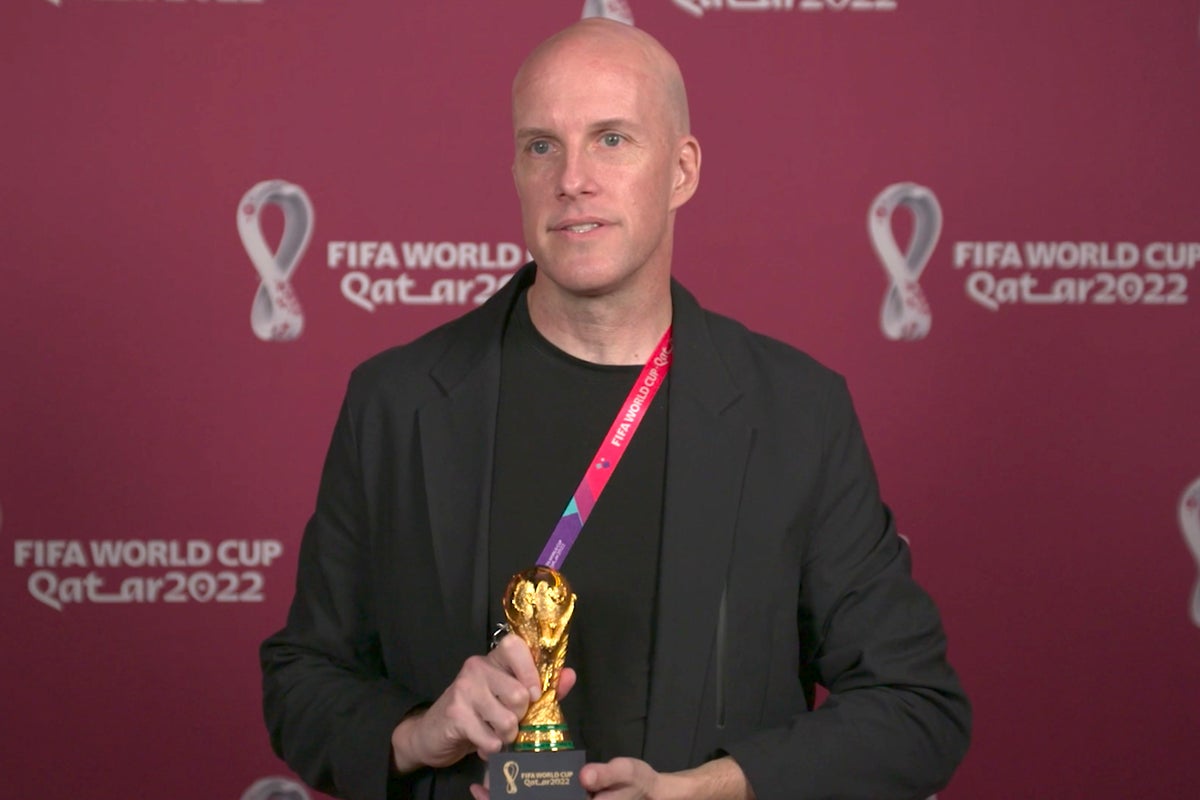
Grant Wahl, a prominent American sports journalist recognised for a long history covering US soccer and the World Cup, died after collapsing in his seat while covering the quarterfinal match between Argentina and the Netherlands on 9 December.
News of his death has sparked an outpouring of grief and shock throughout the sports world, noting his more than two decades as an ambitious force at famed sports magazine Sports Illustrated and his human rights advocacy that fuelled his work.
The magazine’s co-editors said in a joint statement they were “shocked and devastated at the news of Grant’s passing.”
“We were proud to call him a colleague and friend for two decades – no writer in the history of [Sports Illustrated] has been more passionate about the sport he loved and the stories he wanted to tell,” said the statement.
He had first joined the publication in 1996, volunteering to cover soccer as a junior reporter, eventually becoming “one of the most respected soccer authorities in the world,” according to the editors’ statement.
Wahl left the magazine in 2020 and began publishing on a podcast and Substack newsletter, where one of his final dispatches criticised Qatar’s government and World Cup committee for horrific working conditions and worker deaths.
“When a country fails to take the time to properly investigate up to 70 per cent of its migrant worker deaths, that’s a sign: They just don’t care,” he wrote.
In one highly publicised incident during this year’s events, Wahl was detained by Qatari security guards at a stadium when he arrived wearing a rainbow soccer ball T-shirt.
He wrote that security guards refused to let him in, detained him for 25 minutes and demanded that he remove his shirt.
“The entire episode left me wondering: What’s it like for ordinary Qataris who might wear a rainbow shirt when the world isn’t watching here?” he wrote. “What’s that like?”
Wahll – whose career spanned 11 World Cups – had celebrated his birthday earlier this week, surrounded by “a great group of media friends at the World Cup,” he wrote. “Very thankful for everyone.”
He also recently wrote about and discussed health issues he was facing in the days leading up to his death, including chest pains and what felt like a cold that turned into “something more severe.”
“My body finally broke down on me,” he wrote earlier this week. “Three weeks of little sleep, high stress and lots of work can do that to you.”
In an episode of his Futbol with Grant Wahl podcastthat was published on 6 December, published don 6 December days before his death, he had complained of “tightness in my chest, tightness, pressure. Feeling pretty hairy, bad.”
He said he received medical care from the World Cup media center believing he had bronchitis. He said he was given cough syrup and ibuprofen and felt better shortly afterward.
Wahl also said that he experienced an “involuntary capitulation by my body and mind” during the US-Netherlands game on 3 December,
“This isn’t my first rodeo. I’ve done eight of these on the men’s side,” he said at the time. “I’ve gotten sick to some extent at every tournament, and it’s just about trying to find a way to … get your work done.”
His wife, Dr Celine Gounder, wrote that she is in “complete shock” as she shared a statement from US Soccer.
“I am so thankful for the support of my husband’s soccer family [and] of so many friends who’ve reached out,” she said.
Chris Wittyngham, Wahl’s podcast co-host, told CNN that the news of his death had been hard to fathom.
“For Americans, Grant Wahl is the first person you read covering soccer,” he said. “He was kind of the only person for a while … Grant was the first person who really paid genuine attention to this sport in a meaningful way.”

US Soccer “is heartbroken to learn that we have lost Grant Wahl,” the organisation wrote.
“Fans of soccer and journalism of the highest quality knew we could always count on Grant to deliver insightful and entertaining stories about our game, and its major protagonists: teams, players, coaches and the many personalities that make soccer unlike any sport.”
FIFA President Gianni Infantino noted in a statement that Wahl was among sports writers recently honoured by the organisation and the International Sports Press Association “for his contribution to reporting on eight consecutive FIFA World Cups.”
Current and former soccer stars and statements from other across the world of sports shared their condoloences and tributes.
“Numb. Shocked. Devastated to hear the news about Grant Wahl,” wrote former US national team goalkeeper Tony Meola.
“The world lost a kind human being,” he said. “Met Grant as a young reporter and later had the pleasure of working with him last [World Cup]. He loved people, life and our sport. May your soul rest in peace Grant.”
Tennis great Billie Jean King called him a “talented journalist” and “an advocate for the LGBTQ community [and] a prominent voice for women’s soccer”.
“He used his platform to elevate those whose stories needed telling,” she added. “Prayers for his family.”
Former US women’s national team player Ali Krieger called him an “inspiration to our soccer community and anyone who was lucky enough to meet him”.
US State Department spokesperson Ned Price said in a statement that the agency is in “close communication” with Wahl’s family.
World Cup organizers also are connected with the US embassy “to ensure the process of repatriating the body is in accordance with the family’s wishes.”







